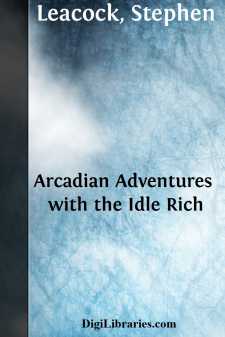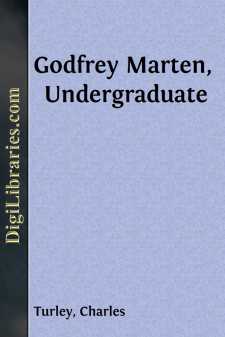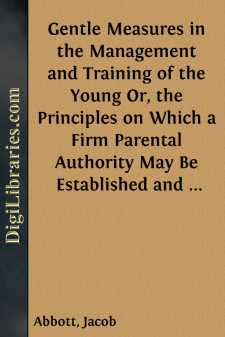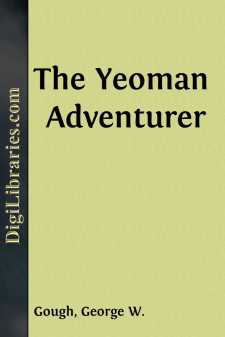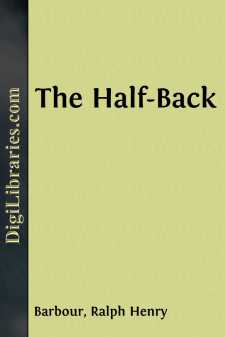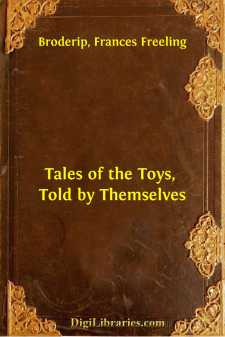Fiction
- Action & Adventure 180
- Biographical 15
- Christian 59
- Classics
- Coming of Age 5
- Contemporary Women 3
- Erotica 8
- Espionage/Intrigue 12
- Fairy Tales, Folklore & Mythology 236
- Family Life 169
- Fantasy 117
- Gay 1
- General 596
- Ghost 32
- Historical 808
- Horror 43
- Humorous 160
- Jewish 25
- Legal 4
- Medical 22
- Mystery & Detective 315
- Political 49
- Psychological 41
- Religious 64
- Romance 159
- Sagas 11
- Science Fiction 730
- Sea Stories 113
- Short Stories (single author) 537
- Sports 10
- Suspense 1
- Technological 8
- Thrillers 2
- Urban Life 31
- Visionary & Metaphysical 1
- War & Military 173
- Westerns 199
Classics Books
Sort by:
by:
Stephen Leacock
CHAPTER ONE: A Little Dinner with Mr. Lucullus Fyshe The Mausoleum Club stands on the quietest corner of the best residential street in the City. It is a Grecian building of white stone. About it are great elm trees with birds—the most expensive kind of birds—singing in the branches. The street in the softer hours of the morning has an almost reverential quiet. Great motors move drowsily along it,...
more...
by:
Charles Turley
OXFORD The night before I left home for Oxford I had a talk with my father. He was not of the sentimental kind, but I knew that he had a rare fondness for my brother, my sister Nina and myself, and I have never had a moment when I did not return his affection. He had always been bothered by my lack of seriousness, and he doubted whether I should really get the best out of 'Varsity life. After...
more...
by:
Jacob Abbott
CHAPTER I. THE THREE MODES OF MANAGEMENT. It is not impossible that in the minds of some persons the idea of employing gentle measures in the management and training of children may seem to imply the abandonment of the principle of authority, as the basis of the parental government, and the substitution of some weak and inefficient system of artifice and manoeuvring in its place. To suppose that the...
more...
by:
Paul Avril
Château de Férouzat, ..., 18... No indeed, my dear Louis, I am neither dead nor ruined, nor have I turned pirate, trappist, or rural guard, as you might imagine in order to explain my silence these four months since I last appeared at your illustrious studio. No, you witty giber, my fabulous heritage has not taken wings! I am dwelling neither in China on the Blue River, nor in Red Oceania, nor in...
more...
by:
Frank J. Webb
CHAPTER I. In which the Reader is introduced to a Family of peculiar Construction. It was at the close of an afternoon in May, that a party might have been seen gathered around a table covered with all those delicacies that, in the household of a rich Southern planter, are regarded as almost necessaries of life. In the centre stood a dish of ripe strawberries, their plump red sides peeping through the...
more...
by:
George W. Gough
IN WHICH I SLIP Sultan was a horse for a man, long and regular in his stride, perfect in action, quick to obey, cat-like at need. I might have ridden him from the day on which the blacksmith drank his colt-ale, for we understood each other exactly, and I was as comfortable on his back as in my bed at the Hanyards. In the open road at the mere-end, he settled down into a steady, loping trot, and I was...
more...
THOMAS WILSON. Eloquence first given by GOD, after lost by man, and last repaired by GOD again. [The Art of Rhetoric.] Man in whom is poured the breath of life, was made at his first being an everlasting creature, unto the likeness of GOD; endued with reason, and appointed lord over all other things living. But after the fail of our first father, sin so crept in that our knowledge was much darkened,...
more...
CHAPTER I. THE BOY IN THE STRAW HAT. "How's craps, Country?" "Shut up, Bart! he may hear you." "What if he does, ninny? I want him to. Say, Spinach!" "Do you suppose he's going to try and play football, Bart?" "Not he. He's looking for a rake. Thinks this is a hayfield, Wall." The speakers were lying on the turf back of the north goal on the campus...
more...
SLEEPYHEAD As I lay awake in the white moonlight,I heard a faint singing in the wood, "Out of bed, Sleepyhead, Put your white foot, now; Here are we Beneath the tree Singing round the root now." I looked out of window, in the white moonlight,The leaves were like snow in the wood— "Come away, Child, and...
more...
CHAPTER I.—INTRODUCTORY. THE TURNING OUT OF THE TOY CUPBOARD. urrah! We are going to have such a jolly holiday!" shouted Frank, suddenly bursting out of his imprisonment in the slate closet, to the great disturbance of his sisters, who were peaceably occupied with their lessons. "Frank," said Miss Watson, "I must really at last report you to your Papa. I do not like to trouble him if...
more...


